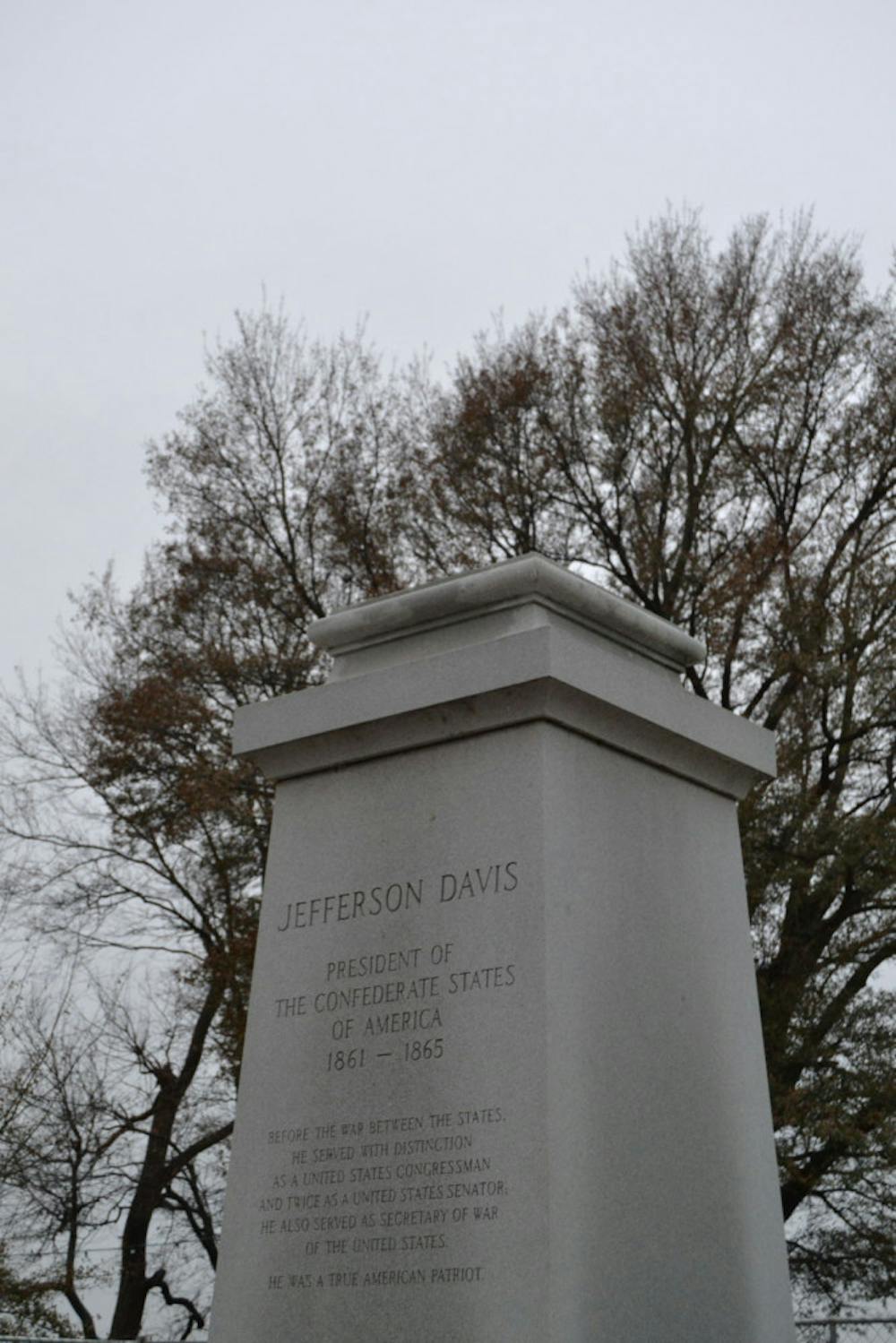After only five months since the removal of the monuments for Nathan Bedford Forrest and Jefferson Davis, Tennessee lawmakers voted to penalize the city of Memphis and take $250,000 out of the bicentennial celebration budget for next year.
After first being denied by the Tennessee Historical Commission to remove the statues of Forrest and Davis in October 2017, protesters in favor of the removal were finally vindicated when the city removed both statues on Dec. 20, 2017. In a 56-31 vote in the Republican supermajority state legislature, adjustments to the House appropriations bill were added that deliberately took funds from the city as punishment for Memphis’ decision to do away with the two Confederate statues in its public parks.
Antonio de Velasco, a communications professor at the University of Memphis, said the state legislature is fighting back against the city for bypassing and finding loopholes in state laws that were written to protect the Confederate monuments. He also said the actions of and the penalty attempting to be implemented by state legislators shows the disconnect and incompetence state lawmakers think the city of Memphis has.
“This is an attempt to put us in our place,” de Velasco said. “I think the question of local monuments should be a local question, and this only shows the unwillingness of state lawmakers to try and understand what goes on in Memphis.”
De Velasco said there is a trend occurring in the state legislature in which Memphis representatives are kept out of conversations that concern Memphis. After the budget cut announcement was made, both Memphis citizens and representatives said the issue is far beyond the removal of the statues. Rep. Antonio Parkinson (D-Memphis) called the notion the most “vile, racist” effort he had seen.
“The idea that a city is being punished for removing Confederate statues lawfully proves that this has nothing to do with the statues, bringing jobs to Memphis or healthcare but the underlying element of white supremacy that still resides in our capital,” de Velasco said.
Steven Mulroy, the associate dean at Cecil C. Humphreys School of Law, said reprimanding a city that is predominately black with primarily black representatives for taking down statues of Ku Klux Klan and Confederate leaders is irrefutably “racially insensitive.”
Memphis resident, Brittney Block, set up a GoFundMe campaign to raise back the money the state legislature removed from next year’s budget after talking with many people on social media and seeing the outrage about the cuts. Block said regardless of how much money was taken from the city and how small the amount in comparison to the entire budget, the decision was “petty and punitive,” and if the money was allocated to the city, then the city should still receive it.
“I only set up the GoFundMe page,” Block said. “I have even tried to set up multiple administrators on the account. This was based solely off the interest of the community.”
Block will meet with Memphis Mayor Jim Strickland on Friday to come up with a way to transfer the funds to the City of Memphis.
The statue-less tombstone of former President of the Confederacy Jefferson Davis sits in Memphis Park downtown. After both the statues of Davis and of Nathan Bedford Forrest were removed in December 2017, the city of Memphis has seen feedback from people both for and against the decision.
The tombstone of Confederate General Nathan Bedford Forrest sits in Health Sciences Park without Forrest's statue on top after the statue was removed in late December 2017. The monument was blocked off to the public after the removal of the statue.




